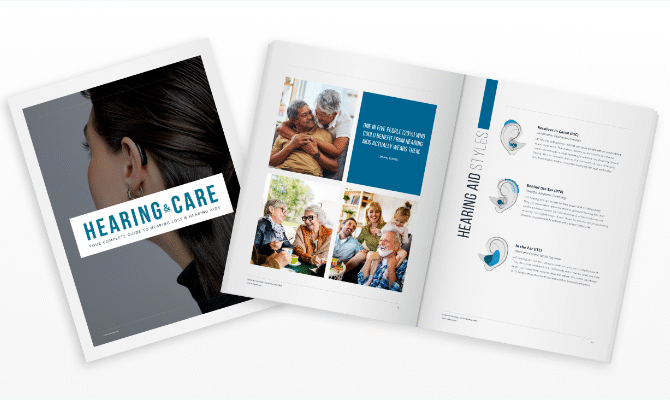Evidence-Based Patient Education Crucial in Tinnitus Management
About 50 million people in the United States suffer with tinnitus, a condition in which people perceive sounds such as ringing or buzzing in their ears or head. It is the number one service-related disability among U.S. veterans.
Yet, there are no consistently applied best practices in how to educate patients about what tinnitus is and options for management, according to a study by University of Miami researchers published September 15 in the Journal of Communication in Healthcare.
Having evidence-based patient education is particularly important in tinnitus, where there is no cure but there are management options that can restore patients’ quality of life, according to study author Tricia Scaglione, Au.D., director of the Tinnitus and Sound Sensitivities Clinic and assistant professor of otolaryngology at the University of Miami Miller School of Medicine.
A few years ago, Dr. Scaglione and study coauthor Brianna Kuzbyt, Au.D., assistant professor of otolaryngology at the Miller School and tinnitus specialist, were reviewing the Tinnitus and Sound Sensitivities Clinic’s protocols.
They found that patients’ access to care was often delayed by multiple appointments with different doctors leading up to their referral to the University of Miami Health System Ear Institute. They also found patients experienced long wait times for appointments for tinnitus services.
“We decided to implement a novel shared medical appointment (SMA) model to improve efficacy and efficiency in the delivery of tinnitus management services, with a focus on educating our patients on the fundamentals of tinnitus and its management,” Dr. Scaglione said.
“The UHealth Care Lab heard about our project and expressed interest in collaborating with us to follow implementation of our SMA protocol to serve as a pilot for the entire health care system.
“In keeping with the University of Miami Health System’s commitment to providing exceptional patient care based on evidence-based practice, we partnered with the School of Communication to conduct a thorough review of available literature on the current state of patient education in tinnitus management practices.”
“We assessed how patients are educated about tinnitus across multiple clinical sites using a variety of care delivery models, and we applied what we learned to our own patient care practices.”
The researchers were surprised to find there was so little peer-reviewed research in tinnitus patient education. Only 18 articles published between 1991 and 2017 met the authors’ criteria.
“Although best practice guidelines exist for educating patients on tinnitus, we found there is a lot of variability in the actual delivery of tinnitus education and services. There does not exist a clear and universally applied protocol that directs providers on how to educate their patients on tinnitus and what to include in that education,” Dr. Kuzbyt said.
“Furthermore, there is a lack of documentation of patient literacy levels and collaboration with education professionals when designing educational materials.”
This first-of-its-kind paper to review and synthesize studies assessing tinnitus patient education modules builds a foundation for better tinnitus education programs and will help increase awareness among doctors and health care providers who have patients suffering with tinnitus, according to the authors.
“Our work identified the need to collaborate with professionals in the fields of education and communication in developing educational materials and delivery of services,” Dr. Scaglione said.
Demystifying tinnitus and educating patients about the medical condition is critical, so patients have realistic expectations about what they can do to manage symptoms and relieve suffering.
“If a patient is told by their doctor that nothing can be done about the tinnitus, it can lead to delayed care and loss of hope of improvement, which can cause the tinnitus to become even more disruptive to a person’s quality of life. No matter the treatment delivery model, it is vital to include a quality tinnitus education component,” Dr. Scaglione said.
Without evidence-based tinnitus education, many turn to the Internet to find what can be blatant misinformation, she said.
Even if providers do not know the intricacies of the tinnitus management protocol, including patient education, they should refer tinnitus patients to an experienced audiologist to work collaboratively with patients’ providers, the authors noted.
“The review really helped us with supporting the development of our shared medical appointment model, which we piloted and is now part of our clinic,” Dr. Kuzbyt said.
“During shared medical appointments, which I’ll add are currently being offered via telehealth, patients receive extensive education regarding anatomy and neurophysiology of tinnitus, realistic expectations for outcomes, in addition to information regarding various coping and management options.”



